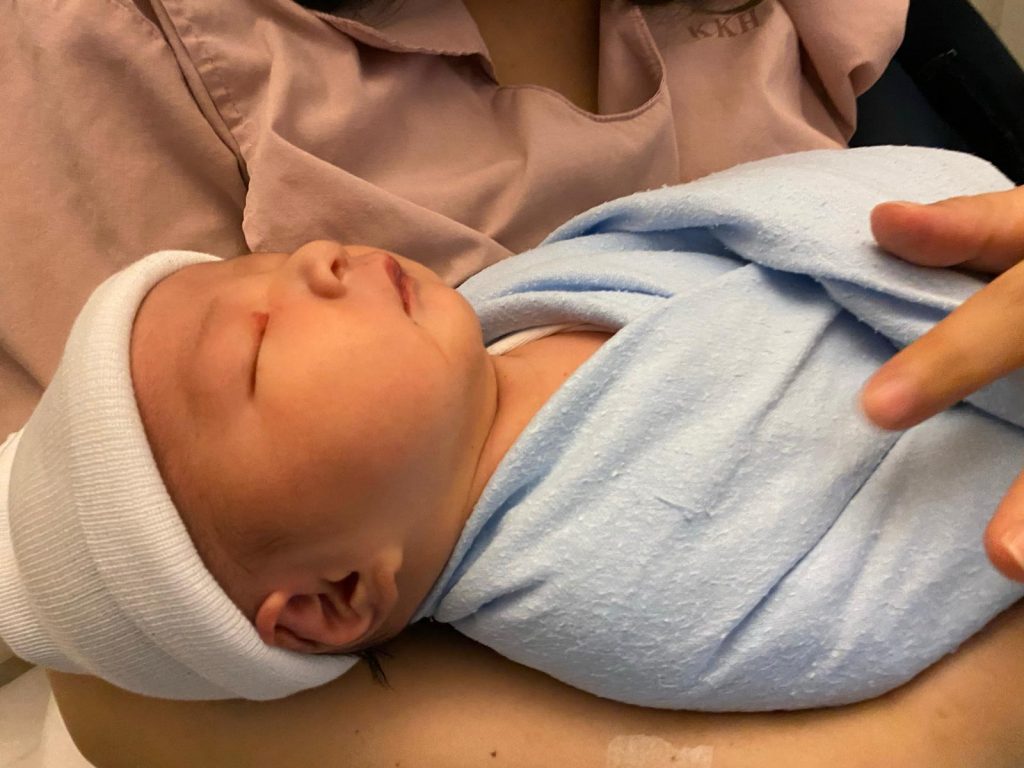If you’re like me, and need medical intervention to conceive a child, here’s what you’ll need to know about the laws and regulations regarding fertility treatments in Singapore.
My Personal Experience with Fertility Treatments - In-Vitro Fertilisation

“When are you going to have a second child?” That’s the question I get posed to me quite frequently once we’ve gone over the topic of my first child and his growth. Usually, I respond that we would need more medical intervention and have come around to having just one.
Medical intervention for me looks like a second fresh In-Vitro fertilisation cycle, as I have blocked fallopian tubes. My first, subsidised cycle, in 2020, yielded nine follicles, and four eggs. Of these, two were deemed non-viable, and two grew to be blastocysts. From there, only one resulted in a live birth – our COVID baby who will be three this December. Another option to resolve this issue includes fallopian tubal recanalisation.
Age Limits and Caps for ART Cycles
I am hardly alone in this. Between 2015 to 2019, an annual average of 7,840 couples couples go through assisted reproduction treatment (ART) cycles. In order to help more couples conceive through fertility treatments, the government lifted the age limits and caps on the number of ART cycles from 1 January 2020. With increased maternal age, the success rates of Assisted Reproduction procedures tend to decrease. At the same time, the likelihood of medical complications and adverse pregnancy outcomes increases. Although the success rates for these procedures for women past 40 years remain low, the safety has improved over the years. Hence, there are significantly reduced medical risks for women beyond 45 years old.
Government Co-Funding
Getting Government Grants for Fertility Treatments
Having taken time off full-time work for me to see this process through, we decided to opt for government co-funding. Beginning with a letter of recommendation from the nearby polyclinic, we then went through blood tests, counselling at KK Women and Children’s Hospital. In order to prepare myself for the treatments, I also went to see a Traditional Chinese Medicine practitioner specialising in fertility treatments, and drank the bitter medicine and went for acupuncture. When we finally started the cycle in March 2020, we opted for government co-funding to offset IVF costs, which could have cost up to $20,000.
Age Limits for Government Co-Funding
While there may not be age limits for ART cycles, there are for couples intending to seek government co-funding. Up to two of the six co-funded ART cycles can be carried out after 40 years old. The caveat though is that the couple must have attempted assisted reproduction or intra-uterine insemination (IUI) procedures before age 40. Additionally, their doctor will have to assess if they’re fit to carry a pregnancy to term. Couples can claim up to $7,700 for three fresh cycles, and $2,200 for three frozen cycles for IVF. Furthermore, couples undergoing IUI procedures at public AR centres can receive co-funding of up to 75 per cent, or up to $1,000 per treatment cycle, for three IUI cycles.
At the beginning of the cycle, the female spouse should be below 40 years of age, and a doctor at the public AR centre must assess the couple to be suitable to try IUI before further assisted conception procedures. At least one spouse should be a Singapore citizen.
Medisave Withdrawals for ART Cycles
A couple may withdraw $6,000 for the first cycle, $5,000 for the second, and $5,000 for the third and subsequent cycles. Withdraw these from your or your spouse’s MediSave. You may only withdraw up to $15,000 per patient. Should the procedure be incomplete due to non-medical reasons, you will not be able to use MediSave to cover the costs of this cycle. After the government co-funding, we only had to pay $4,000 from our MediSave.
Gene Testing
Compared to others, my experience was rather straightforward. However, others may require further testing, like pre-implantation genetic testing. The Ministry of Health introduced this on 4 May 2021 to test for monogenic/single gene defects (PGT-M) and chromosomal structural rearrangements (PGT-SR) as regulated clinical services. Of course, these can only be done at approved hospitals and medical clinics offering Assisted Reproduction services. Starting with a pre-test work-up, the process then continues with the laboratory customising the test, followed by the actual testing stages. After this, the AR centre will biopsy the embryo. On average, this process will take half a year to a year to complete both an in-vitro fertilisation cycle and PGFT.
Gene Testing for Hereditary Conditions
Such testing can only be done for specific hereditary conditions. These include breast-ovarian cancer, Huntington disease, Alpha-thalassemia and Beta-thalassemia. For monogenic or single gene defects, the pre-implantation genetic testing will use Polymerase Chain Reaction-based single cell tests. As for chromosomal structural rearrangements, the testing will comprise either PCR-based single-cell tests or comprehensive 24-chromosome analysis test kits. These perform only low-pass or low-coverage sequencing. Couples requiring this service should check with their AR providers on their licensing status.
Government Co-Funding for Gene Testing
Couples with at least one Singaporean spouse can receive up to 75 per cent in co-funding by the government if they’re clinically eligible for PGT-M or PGT-SR. The process usually involves a pre-test work-up, including the laboratory customising the test and then the actual testing stages. Following this is the embryo biopsy stage by an AR centre. Averagely, this process takes from half to one year to complete both an in-vitro fertilisation cycle and PGT. Couples who are Singaporean citizens can receive co-funding of up to $31,420 for the entire PGT-M process for rare disorders. Each couple is also eligible for up to six co-funded cycles of either PGT-M or PGT-SR. They may also use their MediSave to offset the costs of these procedures, subject to the prevailing limits.
Other Fertility Treatment Solutions: Donor Eggs
Altruistic Egg Donation
For couples who have experienced multiple unsuccessful attempts with other types of assisted reproduction, another option is egg donation. Only altruistic egg donation is allowed in Singapore, so the eggs may come from someone the recipient knows. Some examples include close relatives or trusted friends, although this is fairly rare in Singapore.
Egg Banks in Asia
More commonly, couples can also reach out to egg banks in Malaysia, Taiwan or China, with assistance from their fertility clinics. The recipients will have to bear the costs for the IVF treatments for the donor’s eggs and recipient’s husband’s sperm, transport costs and medical expenses. Additionally, the fertility clinics in Singapore must ensure that the comprehensive screening, including medical tests and psychological counselling have been done by the overseas egg bank. Under Singapore law, a child from a donated egg or sperm is deemed to be the child of the birth mother and her spouse. Donors are under no legal or financial obligation to the child.
Embryo Donation
Women who wish to donate their remaining frozen eggs or embryos to other couples can also do so. Regarding embryo donation, only three couples have donated their embryos to other couples in the last five years. This is largely due to the requirement for AR centres to ensure a genetic link to one of the intended parents of the child. Only in cases where both husband and wife have defective gametes can embryo adoption be considered.
Elective Egg Freezing
Not ready to start your family yet? Women up to 37 years old can also freeze their eggs to help preserve their fertility. Recent review of local and international evidence showed that success rates of egg freezing are relatively stable for women up to 37 years old. Only legally married couples can use the frozen eggs for procreation. Of course, the Singapore government still encourages Singaporeans to get married and have children as early as possible.
Relevant Reads: Beating Infertilty with IUI, IVF: What you need to know



